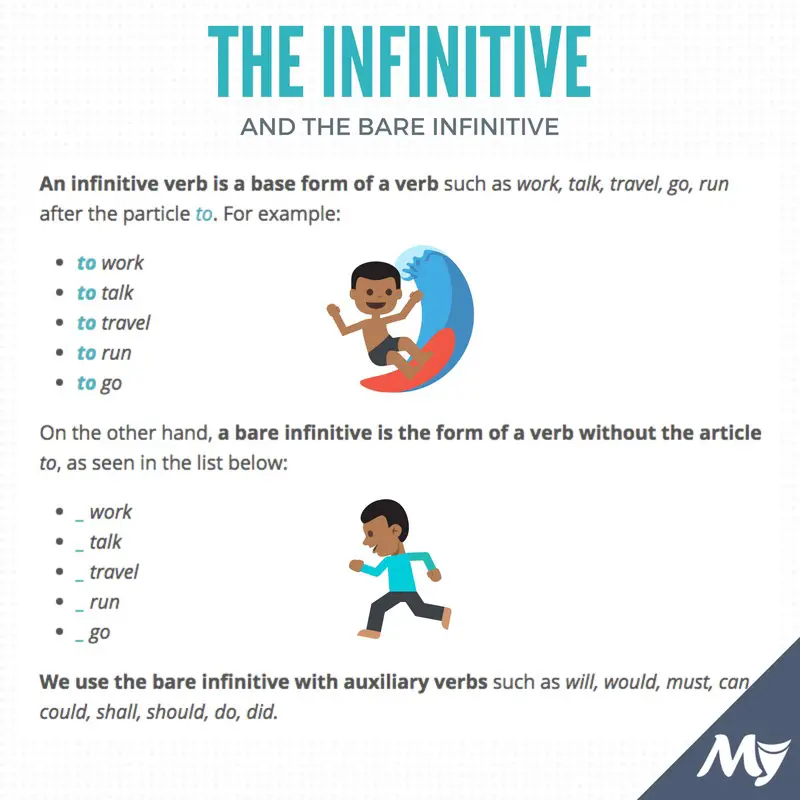
We use the terms infinitive and bare infinitive to refer to the form of the verb in a sentence.
An infinitive verb is a base form of a verb such as work, talk, travel, go, run after the particle to. For example:
- to work
- to talk
- to travel
- to run
- to go
On the other hand, a bare infinitive is the form of a verb without the article to, as seen in the list below:
- _ work
- _ talk
- _ travel
- _ run
- _ go
We use the bare infinitive with auxiliary verbs such as will, would, must, can, could, shall, should, do, did.
Here are some example sentences:
- He will go to the doctor tomorrow.
- I could travel around the world but I don’t have enough money.
- They must finish the project by tomorrow evening.
- The students should study for the exam but they aren’t motivated.
- “You should invite your cousins to the wedding” the bride’s mother advised her.
We can also use the bare infinitive with certain prepositions such as save, but, except.
For example:
- The new parents are so lucky as the baby does anything except cry, she laughs, she smiles but she never cries!
________________________________
More for you:
to make somebody do something
List of Verbs Followed by Both Gerunds and Infinitives!
Causative Form: Causative Verbs Examples
Structure of Verbs in English!


























